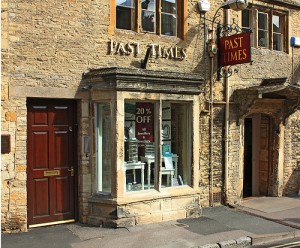Let’s talk about the Past! Greek Irregular verbs you must know Posted by Ourania on Mar 19, 2014 in Grammar
Αόριστος (Aoristos, Past Simple) is one of the most challenging tenses beginners have to deal with. For information on the Aoristos conjugation check this entry https://blogs.transparent.com/greek/tenses-simple-past/
Below there’s a list of some common verbs which have an irregular form and a dialogue in order to put these verbs in context.
|
Ενεστώτας (Enestotas) Present |
Transliteration |
Definition |
Αόριστος (Aoristos) Past Simple |
Transliteration |
|
είμαι |
ime |
to be |
ήμουν |
imoun |
|
έχω |
eho |
to have |
είχα |
iha |
|
λέω |
leo |
to say, to tell |
είπα |
ipa |
|
βλέπω |
vlepo |
to see |
είδα |
ida |
|
δίνω |
dino |
to give |
έδωσα |
gave |
|
πηγαίνω |
pigeno |
to go |
πήγα |
piga |
|
τρώω |
troo |
to eat |
έφαγα |
efaga |
|
πίνω |
pino |
to drink |
ήπια |
ipia |
|
ακούω |
akouo |
to listen, to hear |
άκουσα |
akousa |
|
παίρνω |
perno |
to take, to get |
πήρα |
pira |
|
φεύγω |
fevgo |
to leave, to go |
έφυγα |
efiga |
|
καταλαβαίνω |
katalaveno |
to understand |
κατάλαβα |
katalava |
|
βγαίνω |
vgeno |
to go out, to get out |
βγήκα |
vgika |
(Άννα): Γεια σου Στέλλα, τι κάνεις; (Geia sou Stella ti kanis)
Hi Stella, how are you?
(Στέλλα): Είμαι πολύ κουρασμένη. Χθες το βράδυ ο Μάριος ήταν άρρωστος. (Ime poli kourasmeni. Hthes to vradi o Marios itan arostos)
I’m very tired. Last night Marios was ill.
(Άννα): Είχε πυρετό; (Ihe pireto)
Did he have a temperature?
(Στέλλα): Ναι. Τριάντα εννιά και πέντε. Και το πρωί δεν έφαγε τίποτα. Ήπιε μόνο νερό. (Ne. Trianta enia ke pente. Ke to proi den efage tipota. Ipie mono nero)
Yes. 39.5. And he had nothing to eat in the morning. He drank just water.
(Άννα): Πήρε κανένα φάρμακο; (Pire kanena farmako)
Did he take any medicine?
(Στέλλα): Όχι, αλλά τον είδε ο γιατρός. (Ohi, alla ton ide o giatros)
No, but we called in for the doctor.
(Άννα): Και τι είπε; (Ke ti ipe)
What did he say?
(Στέλλα): Δεν του έδωσε αντιβίωση. Θα κάνει εξετάσεις πρώτα. (Den tou edose antiviosi. Tha kani extasis prota)
He didn’t prescribe any antibiotics. He has to have done some tests first.
(Άννα): Εσύ που πας τώρα; Στο σπίτι; (Esi pou pas tora? Sto spiti?)
Where are you going now? Home?
(Στέλλα): Ναι, πήγα στο φαρμακείο. Πήρα βιταμίνες και ασπιρίνες. (Ne, piga sto farmakeio. Pira vitamines ke aspirines)
Yes, I went to the pharmacy. I bought vitamins and aspirins.
(Άννα): Είσαι μόνη σου; (Ise moni sou?)
Are you by yourself?
(Στέλλα): Ναι. Ο Αντρέας λείπει. Έφυγε προχθές. Θα γυρίσει σε είκοσι μέρες. (Ne. O Andreas leipei. Efige prohthes. Tha girisei se ikosi meres)
Yes. Andreas is away. He left the day before yesterday. He’ll back in twenty days.
(Άννα): Κατάλαβα… (Katalava)
I see…
(Στέλλα): Εσύ τι κάνεις; (Esi ti kaneis?)
How are you?
(Άννα): Καλά… Βγήκα για τρέξιμο αλλά δεν είχα πολύ χρόνο. Τώρα γυρίζω σπίτι. (Kala. Vgika gia treximo alla den eiha poli hrono)
I’m good… I went for a quick run cause I didn’t have much time. Now, I’m heading home.
(Στέλλα): Πάμε μαζί. Άκουσες για το φόνο στο πάρκο; (Pame mazi. Akouses gia to fono sto parko?)
Let’s walk together. Did you hear about the murder in the park?
(Άννα): Σοβαρά; Όχι, δεν άκουσα τίποτα! Για πες! (Sovara? Ohi, den akousa tipota! Gia pes!)
Murder? Really? No, I know nothing about it! Tell me all about it!

Build vocabulary, practice pronunciation, and more with Transparent Language Online. Available anytime, anywhere, on any device.
About the Author: Ourania
Ourania lives in Athens. She holds a degree in French Literature and a Master’s degree in Special Education for Children. Since 2008, she has been teaching Greek to foreigners.




